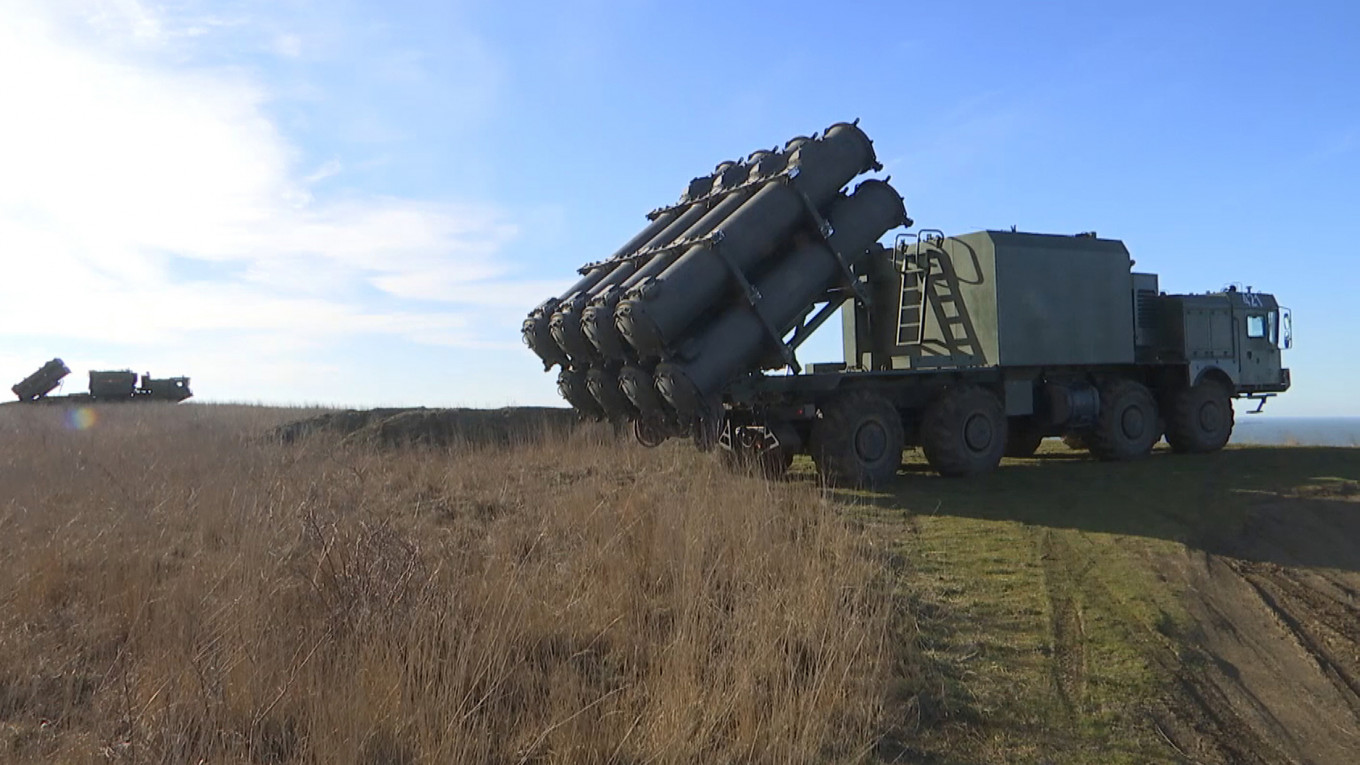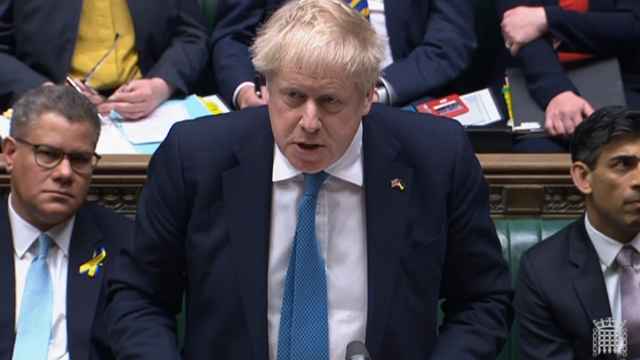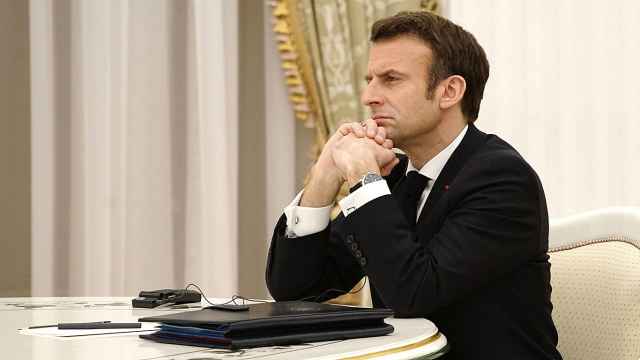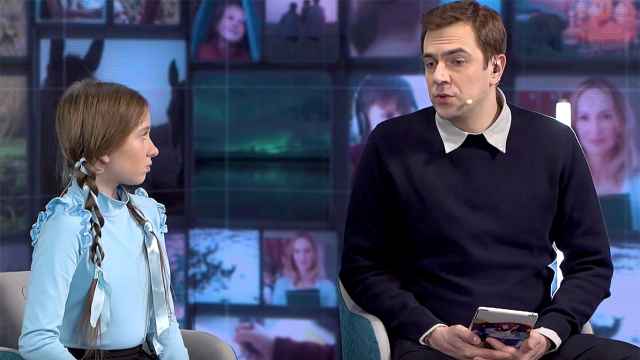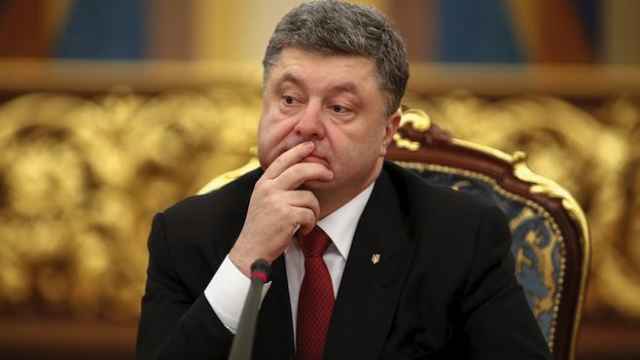Russia's leader will oversee major military drills on Saturday, further escalating tensions after Washington said Moscow would invade within days, and Ukraine's president headed to Europe to drum up support.
Artillery shelling in the east of Ukraine and orders from Russian-backed separatists for civilians to evacuate the region Friday inflamed an already febrile situation as Washington insisted Moscow was encircling its pro-Western neighbor.
The Kremlin continues to say it has no plans to attack.
U.S. President Joe Biden said that the invasion would come in the next week or days and that his Russian counterpart President Vladimir Putin had "made the decision" to invade. But Biden left the door open for a diplomatic resolution.
"Russia has a choice between war and all the suffering it will bring or diplomacy that will make a future for everyone," Biden said at the White House on Friday.
Ukrainian President Volodymyr Zelensky was due to travel to Germany on Saturday to meet Western leaders, with talks between him and U.S. Vice President Kamala Harris expected.
Biden questioned whether it was a "wise choice" for Ukraine's leader to leave his country as war fears reached a fever pitch.
The United States says that with an estimated 149,000 Russian troops on Ukraine's borders — as many as 190,000, when including the Russian-backed separatist forces — an attack is inevitable.
The Russians have never given a figure for the deployment along the border with Ukraine nor how many are taking part in ongoing drills with neighboring Belarus.
Compounding fears, Russia's Defense Ministry announced that Putin would personally oversee previously scheduled drills involving missile launches on Saturday.
'Change the dynamics'
"He's focused on trying to convince the world he has the ability to change the dynamics in Europe in a way that he cannot," Biden added.
There were growing fears that a spark, which Washington warns could be a deliberate "false flag" incident orchestrated by Moscow, could set off the largest military confrontation in Europe since World War II.
NATO chief Jens Stoltenberg, attending the Munich Security Conference, warned the size of the assembled Russian force far exceeded that needed for military drills, and that Russia had the capacity to invade without warning.
France and Germany have urged Russia to use its influence on rebels in Ukraine's disputed east to "encourage restraint and contribute to de-escalation."
But on the ground, a spike in clashes has fed a growing sense of dread.
An AFP reporter near the front between Ukrainian government forces and pro-Russian separatists in the Luhansk region heard explosions and saw damaged civilian buildings on Kyiv's side of the line.
Monitors from the Organization for Security and Co-operation in Europe said Saturday they had seen a significant rise in the number of attacks along the front line, particularly in the separatist areas of Donetsk and Luhansk.
Officials told local media that 25,000 people had left Luhansk and more than 6,000 had left Donetsk for Russia. There were reports of long car queues at checkpoints in Donetsk.
Seeking to reverse the aggressor narrative, Moscow-backed leaders have accused Kyiv of planning an offensive to retake the eastern territories. The evacuations of civilians there were said to be in response to worries about a government attack.
Russian news agencies quoted officials in Luhansk saying there had been two explosions within an hour on a gas pipeline but the fires were under control.
But U.S. Secretary of State Antony Blinken, who will meet his Russian counterpart for talks Thursday according to Biden, accused the Kremlin of mounting a propaganda campaign to create an excuse for war.
Biden again ruled out sending U.S. troops into Ukraine, but his administration reiterated that it would hit Moscow with costly sanctions that would transform Russia into "a pariah to the international community."
A Message from The Moscow Times:
Dear readers,
We are facing unprecedented challenges. Russia's Prosecutor General's Office has designated The Moscow Times as an "undesirable" organization, criminalizing our work and putting our staff at risk of prosecution. This follows our earlier unjust labeling as a "foreign agent."
These actions are direct attempts to silence independent journalism in Russia. The authorities claim our work "discredits the decisions of the Russian leadership." We see things differently: we strive to provide accurate, unbiased reporting on Russia.
We, the journalists of The Moscow Times, refuse to be silenced. But to continue our work, we need your help.
Your support, no matter how small, makes a world of difference. If you can, please support us monthly starting from just $2. It's quick to set up, and every contribution makes a significant impact.
By supporting The Moscow Times, you're defending open, independent journalism in the face of repression. Thank you for standing with us.
Remind me later.


